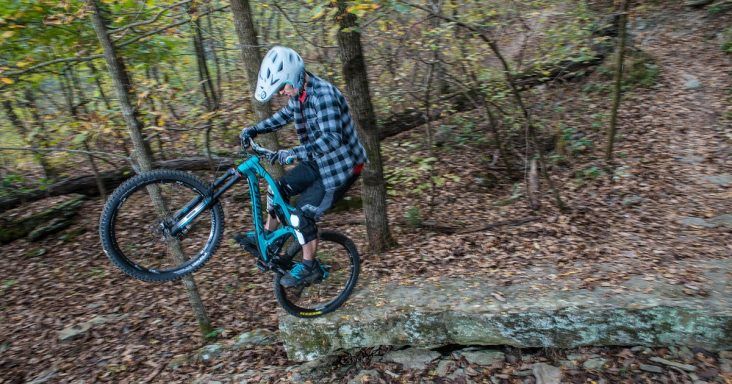Arkansas to open ‘Monument Trails,’ a collection of destination mountain biking trails
by May 13, 2019 1:31 pm 2,750 views

Photo credit: Arkansas Department of Parks & Tourism
Arkansas State Parks will begin opening Monument Trails, a collection of destination mountain biking trails, throughout the state in June. The trails will merge “world-class riding with architecture, art and nature,” noted a news release issued by Arkansas State Parks.
“The Monument Trails are designed with an entire family in mind. The simple goal is to provide an unforgettable experience along the trail that will inspire you to seek, find and discover our state and build a sense of pride and appreciation,” said Suzanne Grobmyer, executive director of the Arkansas Parks and Recreation Foundation. “The Monument Trails are going to change the dynamic for communities across the state by improving quality of life and creating new economic activity.”
The trails take an adventure-minded approach to trails but keep things accessible to riders and hikers of every skill level, the release said.
“Through extraordinary and varied mountain bike riding, innovative build techniques by some of the nation’s best trail builders, and the unique terrain and topography of the Arkansas State Parks, Monument Trails will be truly special,” the release said.
Trails included in the system are designed to engage those using them with nature through biking, camping, fishing and hiking as well as to establish “purpose-built stopping points” that highlight the natural beauty of Arkansas state parks.
Monument Trails are a project of the recently-established nonprofit organization Arkansas Parks and Recreation Foundation (APRF). The foundation is funded through private donations and grants. A $2 million grant from the Walton Family Foundation supported the development of the first Monument Trail at Hobbs State Park in Rogers.
“Trails are a signature characteristic of the quality of life in Northwest Arkansas and an economic engine for tourism in the region,” said Tom Walton, Home Region Committee Chair for the Walton Family Foundation. “Monument Trails can expand those transformative benefits to more communities through world-class ride experiences in state parks across Arkansas.”
‘LOW-IMPACT DEVELOPMENT’
The Monument Trails will expand access to trail systems in Arkansas state parks. Work is underway on designs and future plans in 2019, including trail systems at Pinnacle Mountain State Park in Little Rock, Mount Nebo State Park in Dardanelle and Devil’s Den State Park in Northwest Arkansas, the release said.
Arkansas State Parks Director Grady Spann said the partnership with Arkansas State Parks is an opportunity to showcase the natural beauty of the parks.
“Something setting Arkansas State Parks apart from other natural areas is the encouragement guests are given to engage with the resources,” Spann said. “By building the Monument Trails, we’re focusing on increased recreational opportunities, educating visitors on resource conservation, and enhancing the economy through trail-based tourism – all while maintaining low-impact development on park resources.”
The Monument Trails will be home to purpose-built art or architectural features, special camping spaces and viewing areas on some of the state’s most scenic vistas, the news release said. The first Monument Trail opening to the public will be at Hobbs State Park in June.
ECONOMIC IMPACT
Biking is also touted as having an economic benefit.
The Bentonville-based Walton Family Foundation reported in March 2018 cycling contributed $137 million to the Northwest Arkansas economy in 2017. The economic impact is broken down into health-care related costs ($86 million) by keeping children and adults active and decreasing the prevalence of adverse health conditions, and business benefits ($51 million) that include spending, retail sales and sales taxes and tourism spending by out-of-state visitors. The foundation also has been active in soliciting support from public and private entities for biking trails and related amenities.
The U.S. Bureau of Economic Analysis reported in February 2018 that outdoor recreation spending accounted for 2% of the GDP – or $374 billion – in 2016. That year, the outdoor recreation economy showed faster growth than the overall U.S. economy, increasing 3.8%, versus a 2.8% uptick in the overall economy.
The 2016 data was the first time the bureau released federal statistics on outdoor recreation as its own category within the GDP.
On a national level, conventional core outdoor activities in 2016 accounted for 37% of the total gross output associated with the outdoor recreational spending. Those activities include bicycling, boating, hiking, hunting and others. Other core activities – a category which includes agritourism and outdoor festivals – accounted for 22%, and supporting activities made up 41%.
